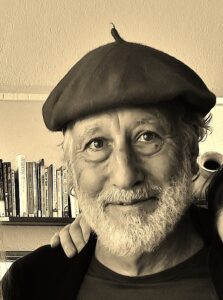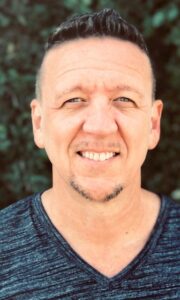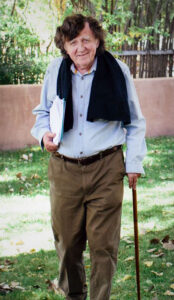 Diederik was born in 1942 in a tiny village south of what now is known as Jakarta, Indonesia. The first three and a half years of his life were spent in Japanese POW camps and it was here that he formed most of his core beliefs, beliefs which he thought were his actual ‘character’. After some fifty years of self-loathing, alcohol, and drug abuse he decided there had to be a better way, it was time to ‘change his mind’ at the deepest levels. Through a Course in Miracles and Attitudinal Healing, he developed a radical forgiveness process that allows him to transform the self he hated into a Self whose only function is to extend love. Choose Again, his charitable society, operates a healing center in Costa Rica and he gives talks and teaches workshops in many places around the world.
Diederik was born in 1942 in a tiny village south of what now is known as Jakarta, Indonesia. The first three and a half years of his life were spent in Japanese POW camps and it was here that he formed most of his core beliefs, beliefs which he thought were his actual ‘character’. After some fifty years of self-loathing, alcohol, and drug abuse he decided there had to be a better way, it was time to ‘change his mind’ at the deepest levels. Through a Course in Miracles and Attitudinal Healing, he developed a radical forgiveness process that allows him to transform the self he hated into a Self whose only function is to extend love. Choose Again, his charitable society, operates a healing center in Costa Rica and he gives talks and teaches workshops in many places around the world.
Some main points discussed in this conversation.
- Everything happens for a reason.
- Diederik’s work goes beneath symptoms to the core belief that ‘chooses’ the symptoms.
- Most core beliefs are formed in the first 8 years of life, and sometimes even in utero.
- Diederik’s birth and early life in a Japanese POW camp. His troubled background.
- Most children blame themselves when traumatic things happen to them. Their behavior eventually expresses that guilt.
- Reading this line in A Course in Miracles completely changed Diederik’s life: “Sin is lack of love as darkness is lack of light.”
- Recognizing that the world is a dream and that we are its author enables us to write a different script.
- Whatever we do in life reflects who we think we are.
- Feelings are vehicles that can take us back to the moment when their underlying beliefs were formed.
- “Nothing outside of me can bring me anything I need and nothing outside of me needs to change for me to be happy.”
- The essence of all these teachings: I am the author of my experience and everything in my life is for me.
- If you decide that happiness and joy are your goals, then whatever happens will serve that goal.
- Bliss is the goal of this process.
- The importance of ongoing practice. It gets easier if you persist.
- Diederik’s Six-Step Process:
- Step 1: I’m upset.
- Step 2: Me: It’s about me.
- Step 3: Focus on the feelings.
- Step 4: Remember my ancient feelings.
- Step 5: Establish my judgment of myself.
- Step 6: Embrace the truth about me.
- “Discomfort is aroused only to bring the need for correction to awareness.”
- Programs available, remotely and in residence.
Website: choose-again.com
Book: Choose Again: Six Steps to Freedom
Book Diederik mentioned: What They Don’t Teach in Prenatal Class: The Key to Raising Trouble-Free Kids & Teens
Discussion of this interview in the BatGap Community Facebook Group.
Interview recorded June 12, 2021
Video and audio below. Audio also available as a Podcast.
YouTube Video Chapters:
- 00:00:00 – Introduction and Background of Diederik Wolsak
- 00:05:15 – Core Beliefs and Self-Blame
- 00:10:17 – The Formation of Core Beliefs
- 00:14:26 – The Unbearable Existence
- 00:19:04 – The Point of Change
- 00:23:45 – Childhood in Indonesia and Self-Hatred
- 00:28:03 – A Blindness to One’s Own Behavior
- 00:32:34 – The Meaning Behind Lesson 135 in A Course in Miracles
- 00:36:43 – Deep Transformation through the Process
- 00:41:16 – The Masks We Wear
- 00:45:42 – The Root of Beliefs
- 00:49:52 – The Process of Transformation
- 00:54:24 – The Power to Interpret Your Experience
- 00:58:59 – The Unexpected Reaction
- 01:02:35 – The Self’s Influence on Experience
- 01:06:58 – Healing Through Awareness of Beliefs
- 01:10:59 – The Guilt of Separation
- 01:15:24 – The Journey to Oneness
- 01:19:15 – The Importance of Commitment
- 01:23:15 – Reflecting Core Beliefs and Healing the Self
- 01:27:36 – The State of Consciousness and Beliefs
- 01:31:49 – Finding Purpose in Office Jobs
- 01:36:12 – Step Two: Recognizing the Author of Our Dreams
- 01:40:26 – Tracing the Root Feeling
- 01:44:38 – The Guilt Behind Punishment
- 01:48:30 – Reforming the Criminal Justice System
- 01:52:53 – Healing Together in Relationships
- 01:57:14 – Finding Support Online
- 02:01:48 – The Completion Process
- 02:06:24 – The Purpose of Discomfort and Correction
- 02:10:39 – Gratitude and Farewell
Podcast: Play in new window | Download
Subscribe: Apple Podcasts | Spotify | Android | Email | TuneIn | RSS | More


